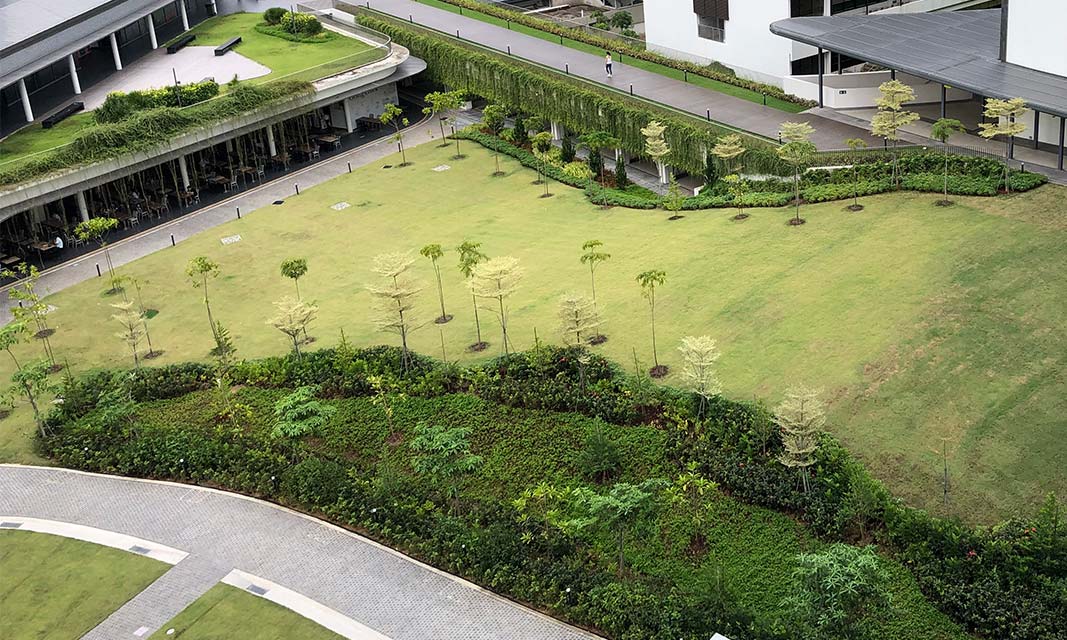Tree Planting for a Greener Campus
NUS aspires to be an environmentally sensitive and responsible campus. As part its campus greening efforts, the University launched the ‘Planting 10,000 Trees’ initiative in 2018 to preserve and promote Singapore’s rich biodiversity. It also re-affirmed the University’s commitment to fight climate change.[1]
Trees can reduce ambient temperatures by shading heat-absorbing surfaces and mitigating the urban heat island effect. They also have enormous capacity to absorb carbon and filter air pollutants.
To identify ideal planting locations, the NUS Office of Facilities Management collaborated with NUS School of Design and Environment researchers to employ thermal satellite imaging to identify ‘hot spots’ throughout the campus. The areas were studied, and an aesthetically pleasing combination of plants and trees that will thrive in those areas were then identified.
Trees have been planted at the hot spots, main roads, carparks, and along building facades and infrastructure to reduce the campus ambient temperature. This initiative was successfully completed in December 2020, one year ahead of schedule.
An array of outdoor sensors have been installed to record the outdoor temperatures as the foliage grows. In the densest parts of the grooves, a drop of two degrees Celsius in ambient temperature compared to the surroundings has been recorded.
Apart from cooling hot spots, these 10,000 trees will also enhance campus liveability, biodiversity and contribute to the sequestration of an estimated 220 tonnes of carbon dioxide and the production of nearly 1,200 tonnes of oxygen annually.
Going forward, NUS will intensify its campus greening efforts and plant up to 100,000 new trees by 2030. This will contribute 10 per cent to the National Parks Board’s plan to plant one million trees across Singapore by 2030.
_____
[1] The 2017-2020 NUS Sustainability Strategic Plan tracks green spaces in buildings (i.e. green roofs, roof gardens and vertical greenery) and not tree planting. However, trees play a significant role in climate change mitigation and adaptation, aside from greening the campus.

